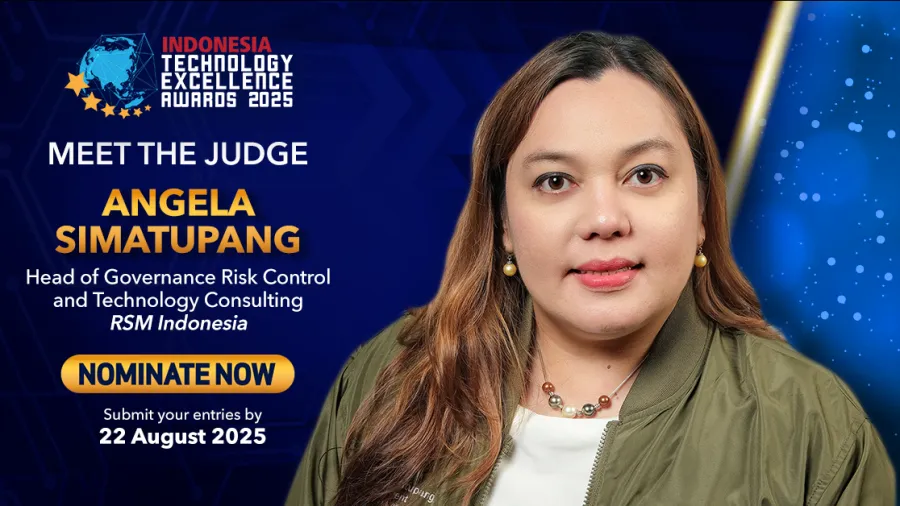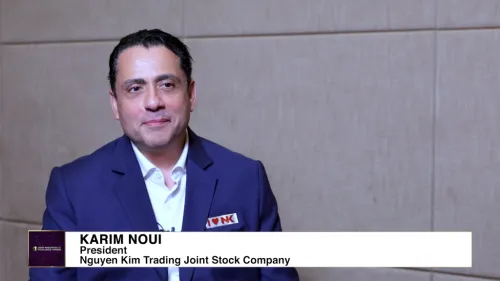
Businesses must consider how technology supports accessibility and inclusivity – RSM’s Angela Simatupang
She emphasises that technology companies in Indonesia need to shift from a reactive to a proactive mindset to stay resilient.
As digital transformation accelerates across Indonesia, businesses are navigating a complex landscape of opportunities and risks. To remain competitive in the long term, the technology sector must adopt integrated, forward-looking strategies supported by strong governance, effective risk management, and digital resilience.
With extensive experience spanning over two decades, Angela Simatupang offers invaluable insights into governance, risk, and technology. She is the Senior Partner, Head of Governance Risk Control and Technology Consulting at RSM Indonesia, as well as a Director on the Global Board of RSM International.
She has led various advisory practices, focussing on ESG and sustainability, risk management, internal audit, fraud prevention, cybersecurity, digital transformation, and data analytics. She is a member of the International Internal Audit Standards Board (IIASB) under the IIA Global, President of The Institute of Internal Auditors Indonesia, and advisor to government agencies. Simatupang also represents Indonesia as a corporate governance expert for the ASEAN Corporate Governance Scorecard initiative. Earlier in her career, she co-authored key national frameworks, including the Indonesia Code of Corporate Governance and the Good Public Governance Code.
As a judge at the Indonesia Technology Excellence Awards 2025, Simatupang discussed the state of digital risk management, the evolving regulatory climate, and the strategic factors that will define success for Indonesian companies.
Based on your experience advising a wide range of sectors, how would you assess the current state of digital risk management amongst Indonesian companies?
Digital risk management in Indonesia is still a work in progress. Whilst sectors like banking and financial services are making significant strides, many companies—especially in the mid-market segment—tend to see it as a compliance exercise rather than a business imperative. Board-level awareness has improved in regulated sectors, but integration into enterprise-wide risk frameworks is often patchy. In industries outside finance, digital risk is frequently delegated to IT departments, without clear accountability at the management level. This fragmented approach leaves gaps, especially as digitalisation accelerates in response to market pressures.
What are the most pressing risks facing the Indonesian technology sector today, particularly in relation to data, cybersecurity, and regulatory compliance?
Indonesia’s rapid digital adoption has outpaced its cybersecurity readiness. The rise of data breaches, ransomware attacks, and social engineering scams—many targeting SMEs and startups—shows that even basic cyber hygiene isn’t consistently in place. On the regulatory front, compliance with the Personal Data Protection Law (UU PDP) is creating both urgency and uncertainty, especially for companies still adapting to shifting rules. There’s also the challenge of navigating overlapping regulations from different agencies, which can create grey areas for businesses. In a market driven by digital consumer engagement, these risks are particularly acute.
Given the rise in emerging cyber threats, what proactive measures should technology companies take to strengthen their cybersecurity strategies and resilience?
Technology companies in Indonesia need to shift from a reactive to a proactive mindset. This means investing in cybersecurity from the design phase—‘security by design’—and embedding it into product development and operations. Regular penetration testing, employee training, and having a clear incident response plan are no longer optional. With many local firms working in regional or global ecosystems, engaging in threat intelligence sharing is also becoming critical. Above all, cybersecurity needs to be treated as a strategic business issue, not just a technical concern.
What are the key factors that Indonesian businesses should focus on when implementing technology solutions to ensure long-term impact and sustainable digital transformation?
Many Indonesian companies adopt new technologies in response to market trends, but sustaining the benefits requires clear alignment with business goals. It’s important to look beyond quick wins and focus on solutions that enable scalability, data integrity, and process resilience. Given Indonesia’s diverse market landscape, businesses should also consider how technology supports customer accessibility and inclusivity—especially outside major urban centres. Building internal capability, not just relying on vendors, is key to long-term success. And with regulatory landscapes evolving, compliance readiness should always be factored into digital transformation plans.
Looking ahead, what core technology innovations and strategic priorities should Indonesian companies develop to remain competitive amidst rapid digital transformation?
Data-driven decision-making—through analytics, AI, and automation—will be a critical differentiator, especially in sectors like retail, manufacturing, and financial services. Cloud adoption remains a game-changer, particularly for businesses looking to expand beyond Java and tap into Indonesia’s broader archipelago market. Strengthening cybersecurity and governance frameworks will be essential as digital trust becomes a competitive advantage. Companies should also look at technology that supports ESG commitments, as sustainability is gaining traction with both regulators and consumers. The winners will be those who pair innovation with strong execution and an understanding of Indonesia’s unique market dynamics.
As a judge for the Indonesia Technology Excellence Awards 2025, what key criteria will you be looking for when evaluating the nominees’ achievements in technology and innovation?
I’ll be looking for solutions that not only showcase technical excellence but also deliver tangible business impact and address real market needs. Innovations that demonstrate adaptability across Indonesia’s diverse regions or solve local challenges—like access to services in remote areas—will stand out. I also value initiatives where technology is thoughtfully integrated with risk management, governance, and a clear vision for scalability. Leadership commitment, especially in fostering innovation culture within the organisation, is another important factor. Ultimately, I’m keen to recognise those who are not just riding the digital wave, but shaping it responsibly and sustainably.


















 Advertise
Advertise







